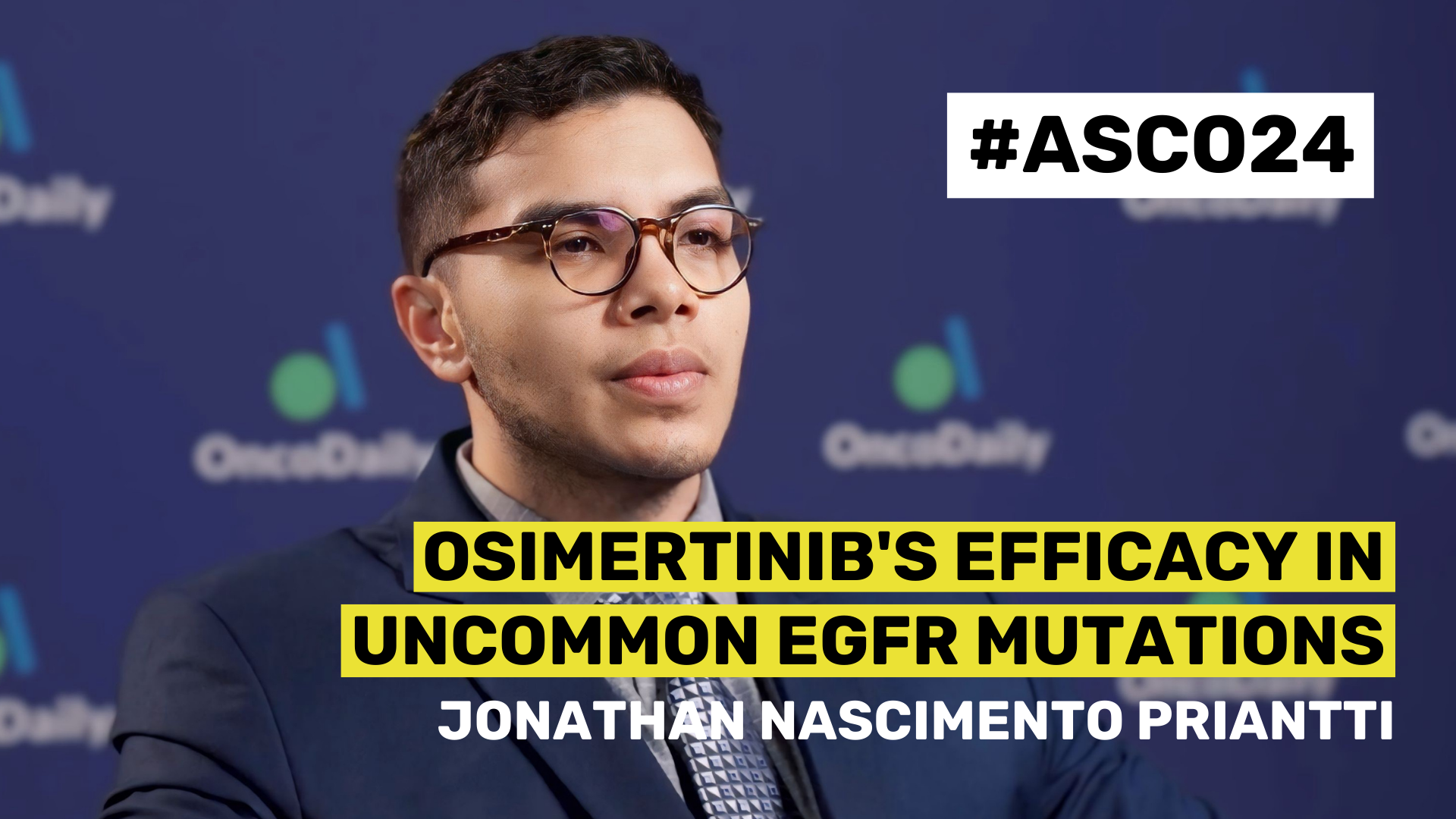The American Society of Clinical Oncology (ASCO) Annual Meeting is one of the largest and most prestigious conferences in the field of oncology. This year, the meeting took place from May 31 to June 4 in Chicago, Illinois. The event gathers oncologists, researchers, and healthcare professionals from around the world to discuss the latest advancements in cancer research, treatment, and patient care. Keynote sessions, research presentations, and panel discussions are typically part of the agenda, providing attendees with valuable insights into emerging trends and innovations in oncology.
This year, OncoDaily was at ASCO 2024 for the first time covering the meeting on-site. We had the pleasure of interviewing researchers who summarized the highlights of their work.
In this video, Jonathan Nascimento Priantti, a fifth-year medical student from the Federal University of Amazonas, presents his study on ‘Safety and efficacy of osimertinib in patients with NSCLC and uncommon tumoral EGFR mutations: A systematic review and meta-analysis.‘
I’m Jonathan Priantti, I’m a fifth year medical student from the Federal University of Amazonas in Manaus, Amazonas, Brazil. Our abstract is about the efficacy and safety of ozomortinib in patients with uncommon tumor EGFR activating
mutations. PubMed, Cochrane, and N-Base were systematically searched for eligible studies.
We found 15 studies that met eligibility criteria, accounting for 592 patients. The most common uncommon mutations were G719X, S768I, and also the L861Q. Most patients included in our study were female, had a good performance
status, and received ozomortinib as a first-line setting.
Regarding our main outcomes, we found an object response rate of 50% and a disease control rate of 90%. Regarding survival outcomes, we found a median progression-free survival of 8.2 months and also a median overall survival of almost 20 months.
We also assessed the intracranial efficacy of ozomortinib, and we found an intracranial ORR of 46% and an intracranial GCR of 95%. We performed subgroup analysis on the efficacy of ozomortinib among the most uncommon mutations, and we found patients with the L861Q probably benefit more comparing to the other ones.
Hence, the systematic review and meta-analysis demonstrated patients with uncommon tumor EGFR-activating mutations benefit from ozomortinib, and also it provides a good rationale for further clinical trials evaluating the efficacy and safety of ozomortinib in patients with non-small cell lung cancer harboring uncommon tumor EGFR-activating
mutations. Thank you.
More videos and content from ASCO 2024 on OncoDaily.
